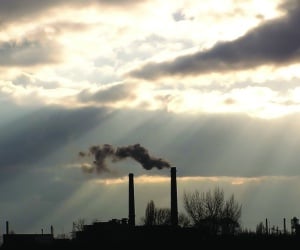A climate expert has warned that large parts of Australia could become uninsurable if nothing is done to address climate change.
Sharanjit Paddam, principal at
Deloitte Actuaries and Consultants, said that not only are the models used for predicting catastrophe-related risks not exacting, general insurance companies also face a range of potential reputational and financial risks due to climate change.
Search and compare insurance product listings for Environmental Liability from specialty market providers here
Paddam, who is also the convener of Actuaries Institute's climate change working group, warned that insurers might refuse to provide cover for areas where the risk of coastal inundation or cyclone became too great,
The Australian Financial Review reported.
"If we don't do anything and end up with a four-degree temperature rise, I think it's inevitable there will be large parts of Australia where it is going to be uninsurable,” Paddam said during the first of a series of climate risk seminars hosted by the Actuaries Institute. "One potential for insurers is to walk away or stop writing risk in certain areas – 'We don't know the frequency and severity of losses and we know that we can no longer tolerate that and walk away'."
In 2012,
Suncorp stopped taking on new policies in the Queensland towns of Emerald and Roma after the 2011 floods, but started writing new business in Roma after the construction of a flood levee,
AFR said.
"This is actually one of the biggest risks to insurers," Paddam said. "The reputational risk to them of not providing policies is huge. Insurers want to write risks and need those risks to be within the right tolerance levels and that's the biggest risk to them from climate change."
This comes after the Australian Prudential Regulation Authority (
APRA) publicly warned Australian financial institutions for the first time about the risks of climate change and urged them to “rise to the challenge,” the report said.
"The days of viewing climate change within a purely ethical, environmental or long-time frame have passed...” APRA's Geoff Summerhayes said. “While climate risks have been broadly recognised, they have often been seen as a future problem or a non-financial problem."
Paddam said that what's challenging for insurers is to assess risks using the so-called catastrophe models that do not always provide long-term clarity.
"The catastrophe models that we have only predict what is going to happen in the next 12 months and there has been a lot of science and a lot of big money thrown at this problem," Paddam said. "You can have two different models that you show you twice as much exposure to earthquakes as the other one. Insurers are used to working with that, we don't need exact answers."
ASX-listed
QBE, the only Australian insurer with a substantial business in the US, reported in October that it expected to exceed its catastrophe budget by roughly US$600m for 2017, which is tipped to force it into an operating loss,
AFR said.
That same month saw Suncorp announce that it had closed 75% of the nearly 20,000 claims it received more than six months after Cyclone Debbie struck Queensland, but that it would need 12 more months to finalise all claims.
It is expected that this year will become the costliest year in the history of the global insurance industry, after a slew of devastating natural disasters, ranging from Cyclone Debbie to Hurricanes Maria, Harvey, and Irma, caused a large spike in claims, the report said.
As the industry nervously watches what disasters the remainder of the year would bring, Paddam said insurers “have not been silent on mitigation, they lobby the government every year,"
AFR reported.
Related stories:
Actuaries Institute to host climate risks seminar
More intense weather events, underinsurance threatens the Australian economy – study


